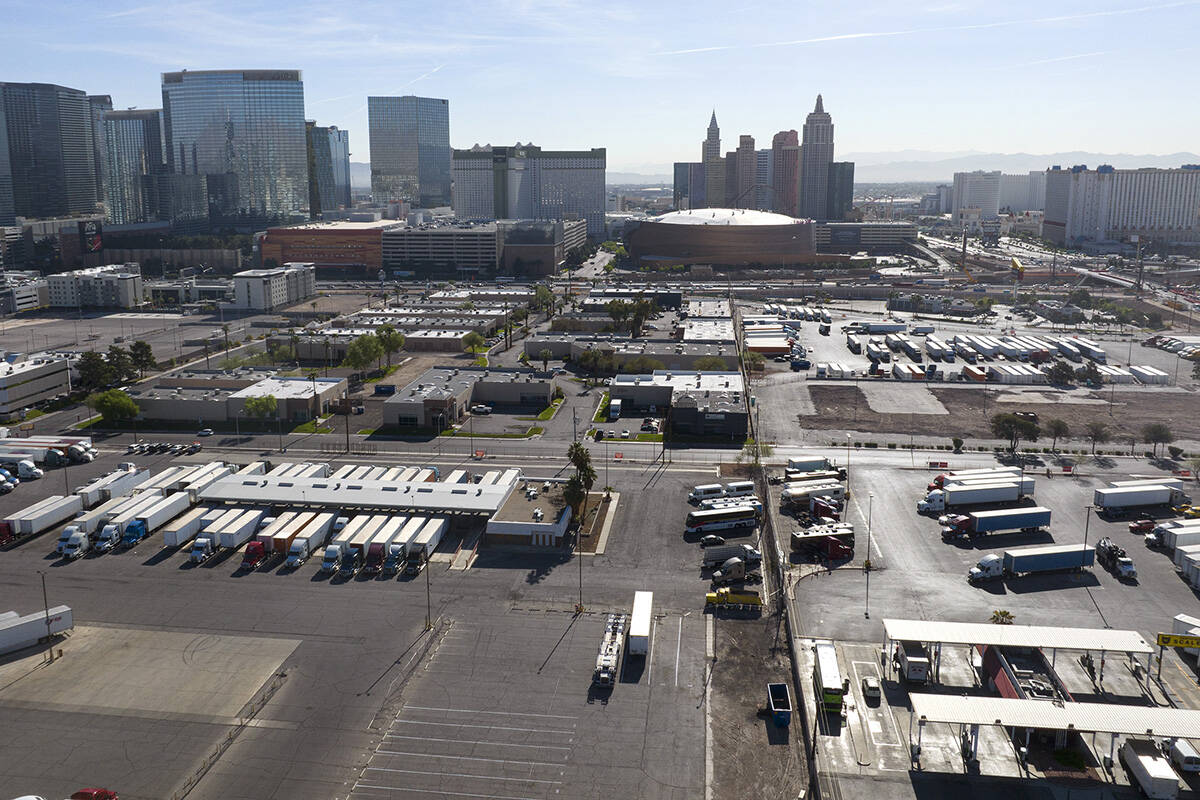Questions about proposed A’s stadium in Las Vegas? We have answers
The soon-to-be former Oakland A’s are negotiating the details of the team’s plan to build a stadium in Las Vegas and move to Southern Nevada. What do we know about the deal so far? We answer some key questions here.
Q: Who will own the new ballpark?
A: The public. Although the A’s have struck a preliminary deal to buy land at the stadium site from Red Rock Resorts, they will turn that land over to the Las Vegas Stadium Authority — the board that oversees Allegiant Stadium. The authority will act as landlord for the facility. The A’s will operate the ballpark.
Q: How will the A’s stadium be financed?
A: The estimated cost of the baseball stadium — $1.5 billion — will be financed by the team and by a special tax district for the stadium site. The team will put up not less than $1 billion, and $500 million will either be financed by bonds sold by Clark County and repaid with money generated by the tax district or funded through transferrable tax credits issued by the state. Any costs in excess of the budget will be covered by the stadium’s developer and the team.
Q: What is this tax district all about?
A: The district will be similar to a redevelopment area, which uses something called “tax increment financing.” Taxes in a redevelopment area are essentially frozen at existing levels, and all new property tax dollars generated in the zone go to the redevelopment agency, which can sell bonds to make improvements.
In the case of the A’s, however, the district will be a little different: Not only will new property tax money be diverted to repay stadium bonds, but sales, live entertainment and other taxes within the district will be used, too. As a result, the district will need special legislative authorization.
Q: Has this ever been done before in Nevada?
A: Not exactly. While redevelopment agencies that use tax increment financing are common and tourism improvement districts use the same financing model as well, the A’s stadium district will be unique in that all tax increments will be diverted.
Q: Is this different from the structure of the deal that provided public funding for Allegiant Stadium?
A: Yes. In that case, the state authorized, and the county imposed, an increase in the hotel room tax to provide $750 million of the stadium’s $2 billion cost. In the A’s deal, as proposed, no new taxes will be imposed.
Q: How will the Legislature consider the plan?
A: The Nevada Legislature will introduce a bill that would enable the county to create a special tax district for the stadium. That bill will have to be heard and debated in committees in both the Assembly and the Senate and will have to pass both houses and be signed by Gov. Joe Lombardo to become law.
Members of the public will have an opportunity at those committee hearings to express support or oppose the tax district.
Q: Will that bill require a two-thirds vote in the Legislature?
A: No, because the bill in question will not create new taxes or increase revenue to the government, the conditions that, under the state constitution, trigger the requirement for a two-thirds vote.
Q: Will this bill require a special session of the Legislature?
A: The Legislature is in regular session in Carson City, so the bill could be introduced before lawmakers head home in June. Although deadlines for the introduction of bills have long passed, legislative leaders can introduce new bills, even late into the session, for consideration. No timeline has been officially set.
Q: Does Clark County have to sign off, too?
A: If the stadium district bill becomes law, and certain requirements are met as determined by county commissioners and the stadium authority board, the county would have to issue the bonds to fund its share of the stadium costs.
Q: Is this a subsidy to a privately owned facility?
A: No. The A’s stadium will be owned by the Las Vegas Stadium Authority. The A’s, however, may privately run and operate other businesses in the vicinity of the stadium.
Q: Will the stadium tax district exist forever?
A. No. The district will dissolve when the $500 million in bonds are repaid, which typically occurs over a period of 30 years or so, similar to a home mortgage. But a small fraction of the district’s tax revenue may continue to be diverted beyond that period to help fund the stadium’s operations.
Q: Does the city of Las Vegas have a role in this deal?
A: No. The stadium site is in unincorporated Clark County, west of the Strip at Tropicana Avenue and Dean Martin Drive, not in city limits.
Contact Steve Sebelius at SSebelius@reviewjournal.com or 702-383-0253. Follow @SteveSebelius on Twitter.



















